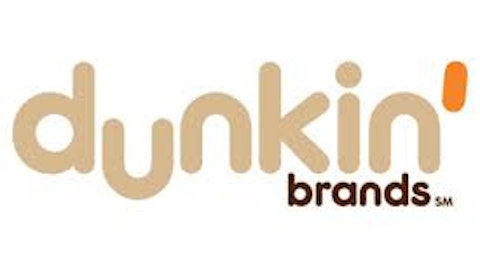In many ways Europe’s problems are considered old news. After the scare following the 2008 financial crisis, investors have turned their eyes to other corners of the world. At same time, the Europe Union continues to decline with growing unemployment and decreasing economic growth. The European Union (EU) is a heavy weight in the world economy with a GDP larger than America’s. When the markets realize the extent of the European Union’s issues, there may be blood in the streets.
European Union Unemployment Rate data by YCharts
Food and cars
General Motors Company (NYSE:GM)‘s Europe division recently posted a loss of $175 million; the biggest loss among all of the company’s divisions. The division also posted a goodwill impairment charge of $590 million, bringing the division’s goodwill balance to $0. Europe is suffering from an overproduction of automobiles, and a declining economy is only making the situation worse. Recently, the European Union’s GDP growth has not even been able to keep up with inflation.
General Motors Company (NYSE:GM) has to look outside of Europe. Thankfully, it is a diversified global company and with other profitable divisions. It enjoys an overall profit margin of 3.9%. Its return on investment (ROI) of 12.1% and total debt to equity ratio of 0.68% are healthy.
McDonald’s Corporation (NYSE:MCD) European comparable same store sales were down 1.1%, but these numbers were boosted by the United Kingdom and Russia. If McDonald’s discussed numbers from just the European Union, its outlook would be even bleaker. People need to eat, but recessions cause people to eat lower quality food and to eat less frequently. Even McDonald’s isn’t immune to these effects.
The company is still very profitable with a ROI of 19.5% and a profit margin of 19.8%, but its growth levels will probably come down as it deals with Europe’s economic contraction. Maintaining its five year earnings per share (EPS) growth rate of 15.2% is a tall order and it is very unlikely that it will be accomplished.
EPV Total Return Price data by YCharts
European ETFs are Laden with Risk
iShares S&P Europe 350 Index is heavily exposed to the EU. Together France, Germany, Spain, the Netherlands, Italy and Belgium are 41.07% of the fund’s holdings. Still, a number of companies based in the United Kingdom have extensive operations throughout the EU and are important parts of this fund. The banking giant HSBC is heavily exposed to the EU and the second largest holding at 2.7%.
While this ETF has risen over the past year, growing unemployment and decreased economic activity is making its way through Europe. Sooner or later asset prices will reflect these difficulties. Its expense ratio of 0.6% is acceptable for a regional fund, but its European focus makes it one ETF that is best avoided.
Vanguard Intl Equi Msci European ETF boasts a low expense ratio of 0.12%, but this does not save the fund from its poor fundamentals. Within its top ten holdings it has a number of companies heavily exposed to the European recession. HSBC, Vodafone, Unilever and Nestle are all heavily dependent upon the unemployed European consumer. The major EU nations of France, Germany and Italy represent 32.1% of the fund and make it best to leave this ETF for another day.
Ultrashort Europe may sound like an attractive way to profit from Europe’s challenges, but the reality is that it is best left to day traders. The fund tries to return two times the reverse of the daily returns of the FTSE Developed Europe Index. This focus on daily performance means that it is not a good fit for investors looking at the long term economic performance of the EU. Also, its expense ratio of 0.95% is rather high.
Over the long term, compounding daily returns cause the fund to perform poorly. Previous this ETF tracked the MSCI Europe Index. Since its inception the Ultrashort Europe fund is down -38.9% while the MCSI Europe Index is up 10.5%.
Conclusion
Vanguard’s and iShare’s European ETFs are best avoided due to Europe’s poor economic performance and growing unemployment. The Ultrashort Europe ETF is based on daily returns and a very poor fit for long term investors. McDonald’s Corporation (NYSE:MCD)and General Motors Company (NYSE:GM) are two American firms that are both suffering in Europe, but their other divisions help to maintain their earnings. Between the two companies, McDonald’s looks like the better investment as its high ROI should allow it to deal with European losses.
Joshua Bondy has no position in any stocks mentioned. The Motley Fool recommends General Motors and McDonald’s. The Motley Fool owns shares of McDonald’s.
The article Flee the European Union While You Can originally appeared on Fool.com.
Copyright © 1995 – 2013 The Motley Fool, LLC. All rights reserved. The Motley Fool has a disclosure policy.








